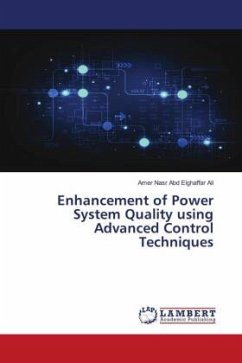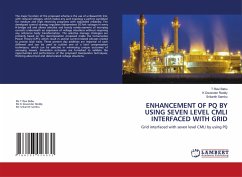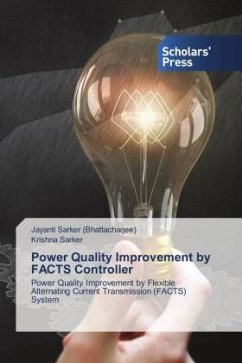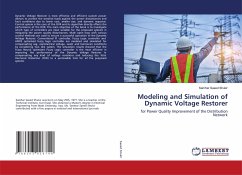
Enhancement of Power System Quality using Advanced Control Techniques
Versandkostenfrei!
Versandfertig in 6-10 Tagen
53,99 €
inkl. MwSt.

PAYBACK Punkte
27 °P sammeln!
The concept of power quality is defined as the power grid's ability to supply a clean and stable power flow as a constantly available power supply. In detail, power quality was referring to the availability of electrical power, voltage, and frequency regulation within a specific range. As electrical devices are getting more sensitive, customers are becoming more aware to find the stable, ideal, and non-tolerant power supply. The consequences of insufficient power quality can inflict serious losses on business and the economy. In the worst-case scenario, it may pose a threat to human life in mi...
The concept of power quality is defined as the power grid's ability to supply a clean and stable power flow as a constantly available power supply. In detail, power quality was referring to the availability of electrical power, voltage, and frequency regulation within a specific range. As electrical devices are getting more sensitive, customers are becoming more aware to find the stable, ideal, and non-tolerant power supply. The consequences of insufficient power quality can inflict serious losses on business and the economy. In the worst-case scenario, it may pose a threat to human life in mission-critical applications and highly sensitive environments, such as hospitals. The power system quality is affecting by a lot of aspects like harmonic distortion, short time transients, sag, over/under voltage, spikes, glitches, voltage unbalance interruptions, and flickers in addition to initial requirements. The reactive power compensation is the main challenge to maintain the system stability to improve the power system quality.












